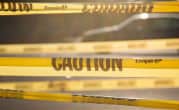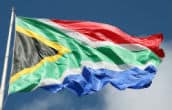Ethical Journalism News And Debates
|
| Journalists have a duty to tell the story, but that doesn’t mean they should publish every horrifying detail. Recent reporting of violent atrocities and terrorist activity has put the need to balance respect for humanity with media responsibilities to tell the truth as they see it. Journalists and editors are constantly facing the tricky question of when to publish and when to edit out the most violent and disturbing elements of a story.
Continue …
|
|

|
|
| Photographer James Oatway’s remarkable photographs of the murder of Emmanuel Sithole in Alexandra, which appeared on last weekend’s Sunday Times front page, will be seared into our collective mind. For the first time, the targets of the violence had a face, a name, a life and a personality — the humanising elements that have been absent in much of the coverage.
Continue …
|
|

|
|
| Last year has been identified as the second worst on record regarding the imprisonment of journalists worldwide. With no fewer than 221 journalists put behind bars last year according to the Committee to Protect Journalists, an understanding of their legal rights and protections is more important than ever. (via Press Gazette) |
|
| To be a journalist, you have to be afraid. Fear makes you triple-check your work. It makes you sharper, faster, more focused. It wakes you up in the middle of the night, or drops in unexpectedly at that party or dinner. Fear demands that you be absolutely sure you want to say every little thing you’re saying. In journalism, as in life, some fear is necessary. But too much fear is paralyzing. (via Columbia Journalism Review) |
|
A late, but welcomed (by PBS), apology
| As a result of the Sony files leaked by Wikileaks, Professor Gates expressed “regret” and apologized for failure to let PBS and WNET know what was happening with Ben Affleck’s interview on “Finding Your Roots.” (via PBS) |
|
| Eritrea and North Korea are the first and second most censored countries worldwide, according to a list compiled by the Committee to Protect Journalists of the 10 countries where the press is most restricted. The list is based on research into the use of tactics ranging from imprisonment and repressive laws to harassment of journalists and restrictions on Internet access. (via Committee to Protect Journalists) |
|